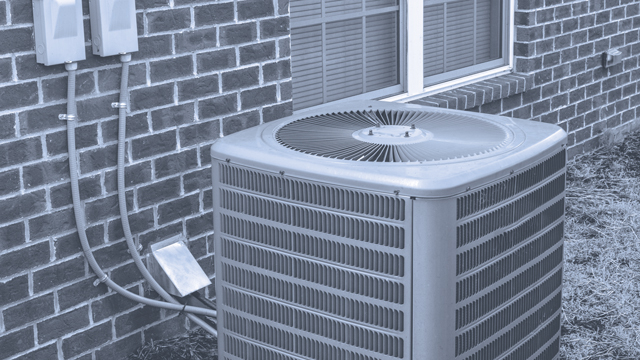As summer drags on, you may be thinking about buying or servicing your existing heating and air conditioning system. The total cost of any appliance, including heating and cooling systems, has three components: the purchase price, the cost of repairs and maintenance, and the cost to operate it. With heating and cooling among the largest energy expenses in the typical home, it is crucial that you maintain your system for efficiency.
Many of the things you should consider when hiring an HVAC contractor are consistent with what to consider when hiring any contractor. Let’s look at some of the considerations that are specific to heating and cooling.
Purchase and Installation
Before you buy, conduct an energy audit. This will help you detect energy waste, gauge the efficiency of your current heating and cooling systems, and determine if conditioned air is moving properly. Your utility company may offer free or low-cost energy audits or a DIY kit. You also can hire a specialist to do a more comprehensive energy audit, although this will probably cost you more money.
Take steps to weatherize your home. Check the caulking, weather stripping, and insulation, and make any necessary repairs. This may enable you to install a smaller, less expensive heating or cooling system to get the same results.
Compare the performance of different brands and models. Study the product literature. Will the product do the job? What is its repair history? Will it handle your needs today? Ten years from now? Does it fit your budget? How energy efficient is it?
Consider energy efficiency from the start. All products must meet minimum energy efficiency standards set by the Department of Energy in the United States and Natural Resources in Canada. But many products beat the standard, use even less energy, and cost less to run. Ask your builder, installer, or home supply outlet about the EnergyGuide label and the fact sheets or product directories for each system you are considering. Compare the energy efficiencies and operating costs of competing models. Consider both the purchase price and estimated operating costs when you decide what to buy. Sometimes you may be eligible for cash rebates or tax breaks from your energy provider for buying and using energy-efficient products. Be sure to check with your energy provider for more information.
Make sure any contractor you hire to install your system is an approved, authorized dealer by the manufacturer. If contractors are approved, it means they meet the requirements, and the manufacturer trusts them to install and represent the product. The contractor you choose should provide at least one call back free of charge after installation to check the system. Confirm that this is in the written agreement. Many contractors offer service contracts under which they will inspect and service your equipment once a year and provide emergency repair service.
Compare more than just cost. Check the size and rated efficiency of the equipment each contractor recommends. Ask each contractor to explain how the estimate of the required heating and cooling capacity and equipment was determined. Make sure the service and products of the contractor you use will provide the maximum benefit in both comfort and value.
Understand the guarantee or warranty. Is the entire job under warranty or only certain materials? Is labor included in the guarantee? Who will make good on the guarantee – the dealer or the manufacturer? Of course, remember the guarantee is only as good as the firm that offers it.
Maintenance and Repair
Keep your HVAC system well maintained to prolong the life of the system and save you money. Be sure to have it checked every year by a qualified technician. Spring or early summer are the best times for servicing cooling systems, while summer or fall are the ideal times for servicing your furnace. You can also do some routine maintenance yourself by replacing disposable filters as needed or cleaning permanent ones.
Before calling a heating or cooling contractor, check what model system you own and the maintenance history for the system. Understand the license and insurance requirements for contractors in your state. Make sure the contractor meets all the requirements.
When having your furnace cleaned, ask the contractor to conduct a test for carbon monoxide. This odorless gas can be deadly, so consider installing a carbon monoxide detector to protect your family between service visits.
If you need repairs, get multiple written estimates for the job. If you need to replace your system, the estimate should include a full description of additional work required for the installation of ducts, registers, electric wiring, and any other work needed.
If you’re looking for a quote from an HVAC contractor in your area, ask neighbors or friends who they use. Visit BBB’s Home HQ (bbb.org/all/your-home-hq) for more tips and find businesses that follow BBB accreditation standards at BBB.org.




